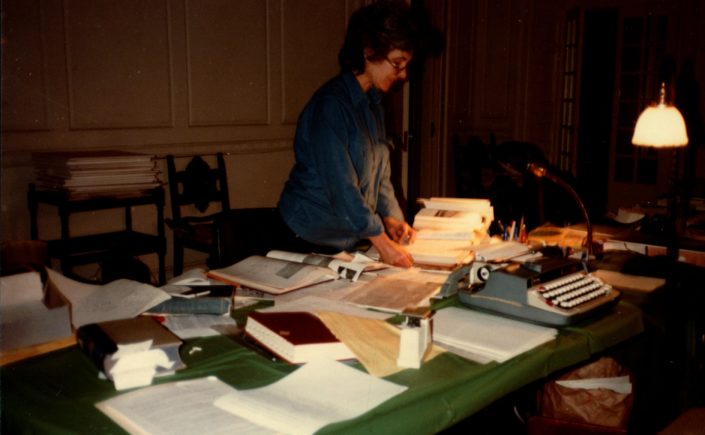In celebration of the Jewish Festival of Lights, the ICS inaugurates its digital manuscript archive on Jews in 20th century America, "The Estelle Papers," with the release of an extensive and long-lost account of Jewish life in northern New England. Written over half a century ago and never before available to the public, Gabriel Shohet's semi-autobiographical novel "Kinships" is audacious in its style and account of New England society around 1900, so problematic to 20th century publishers, so fascinating to us today.
"The Lithuanian-born physician, Gabriel H. Shohet, MD (1892-1976) devoted his spare time to writing a book called Kinships, based on the belief that "fundamental ties unite all men."
He set the semi-autobiographical work in a small New England city of the early decades of the 20th century (the author's adopted hometown of Portland, Maine).
Shohet, the son of a rabbi, and Hebrew teacher in his youth, strove to write fiction in the "powerful, delving, yet poetic style of the Eastern European 19th century Talmudic scholars", his own forebears. The many allusions in the work to Biblical writings and Hebraic and Talmudic literature are the vehicles to express his "aching yearnings for the land of his childhood, fused with a glowing paean to that glorious beacon, "Mother America," of the early 1900's".
By Shohet's account, one of the most moving passages explores "the relationships of a rabbi with his G-d, his wife, and his "flock". The novel's main idea, however, is that we must "rekindle our belief and confidence in America's promise". In becoming "American", Shohet fought nostalgia for the Líta to absorb in totality the younger nation's social customs, mores, pride, optimism, and politics, with the understanding that, somehow, in this great, new universe, this "shining America", an immigrant Jew would find his place.
On the 20th-century literary scene, Shohet would not succeed. His novel was turned down by several U.S. trade publishers - either "too Jewish" for its Yankee setting, or not ethnic enough for a niche appeal. How could a Jewish immigrant penetrate the underpinnings of New England society? How could a nice Jewish doctor from Boston be both a non-conformist and an optimist about "man's inner sensibilities, spiritual qualities, and metaphysical questionings as to his place"? To which choir did this man preach?
Shohet had his own ideas about what was too "controversial or offensive" in his work. "Is it the chapter on Judaism," he asked one publisher bluntly, "or the 'Wisdom of the Stars' bit that is out of kilter?" The tepid response was always that the story did not have mass appeal.
A half-century after the only good copy of Shohet's manuscript made the rounds, it has been digitized and made available in hopes that, to borrow the author's own expression, "the recognition of its flaws are tempered by that of its virtues." Shohet longed for his "life's work", his "soul child" to reach "a real editor, one with understanding." Through new channels of communication and a new type of nostalgia for the immigrant experience, Shohet may finally reach an audience larger than his adoring daughter Estelle, who dedicated her own labored study on shared symbols among ancient cultures to her father, "and his belief in kinships on a human and cosmic scale". - Jessica Dello Russo, (Hanukkah, 2017)
